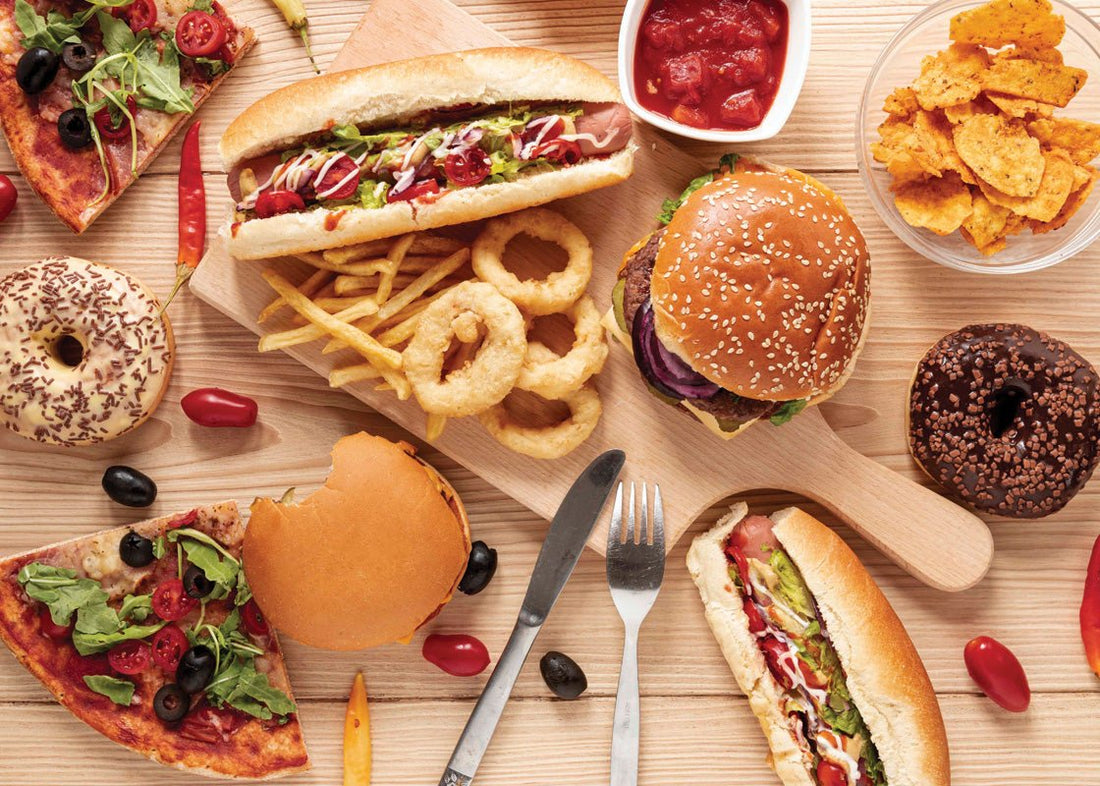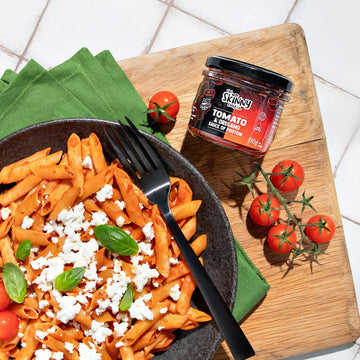Major ultra-processed foods to avoid

Hungry in a hurry? In today’s fast-paced world, convenience often trumps nutrition when it comes to our food choices.
We’ve all found ourselves reaching for ready meals, junk foods, or processed meats when we need to eat but are tight on time.
The NOVA classification is used to group foods according to how much they are processed:
- Group One - Minimally processed or unprocessed foods like fresh, whole fruit and vegetables, fresh meat and fish

- Group Two - Foods containing processed ingredients like sugar, salt and oils
- Group Three - Processed foods like tinned vegetables and fruit
- Group Four - Ultra-processed foods, including ready meals, soft drinks and sweet/savoury snacks. Many of these foods are known as “junk food”. They are low in nutrients and contain lots of manufactured ingredients that don’t add any nutritional value, additives to prolong their shelf life and excessive emulsifiers, stabilisers, artificial colours/flavours or preservatives
According to research by the School for Public Health Research, UK adults get 57% of their daily energy intake from UPFs, with an even higher proportion (66%) seen in adolescents.
Have you ever wondered what exactly is IN these ultra-processed foods?
Read on to learn what might be lurking in the ultra-processed foods you consume and discover smart food swaps you can try.
What ultra-processed foods should I avoid?
Processed meats

Meat products such as sausages, bacon, and deli meats are heavily processed. They also often contain high levels of salt, unhealthy fats, and additives.
If you enjoy eating meat, you could try swapping processed meats for protein-packed grilled chicken, flaked tuna, or lean steak. Not only are they better for you nutrition-wise, but they will also help you feel fuller for longer.
Highly processed bread
Many types of supermarket white bread contain preservatives and emulsifiers.
If you can’t live without the odd slice of toast or sandwich, you could try making your own bread using fresh ingredients or buying sourdough or rye bread as it doesn’t contain processed ingredients.
Ready meals
Sure, they’re quick and easy, but they often sacrifice nutritional quality for shelf stability and prolonged storage. They tend to be packed with sodium, unhealthy fats and preservatives. The lack of fibre and essential nutrients can disrupt the gut microbiome, leading to digestive issues and compromised immune function.
If you have a busy schedule, make time to batch cook and freeze your own healthy “ready meals” that you can heat up when you need them.
Otherwise, cook fresh from scratch using fresh ingredients. If you want to prepare meals in the morning before work, invest in a slow cooker and try some of these healthy slow cooker meals.
Sweet snacks
Food temptations, like pre made and processed cakes and biscuits, are loaded with empty calories, refined sugars, and unhealthy fats. What’s more, they offer little to no nutritional value and can lead to weight gain, obesity and other health problems.
If you have a sweet tooth, why not try baking your own cakes and biscuits using wholesome ingredients?

Why should I avoid ultra-processed foods?
Research shows convincing links between the regular consumption of UPFs and health issues like cardiovascular disease, Type 2 diabetes, mental wellbeing issues (including anxiety and depression), heart disease, sleep problems, obesity, and certain types of cancer. UPFs may also have an adverse effect on your gut microbiome.
The negative health impacts of UPFs, including ready meals, junk foods and processed meats, cannot be overstated.
By prioritising whole, minimally processed foods and adopting mindful eating habits, you can take control of your health and reduce the risks associated with regular or excessive consumption of UPFs.



